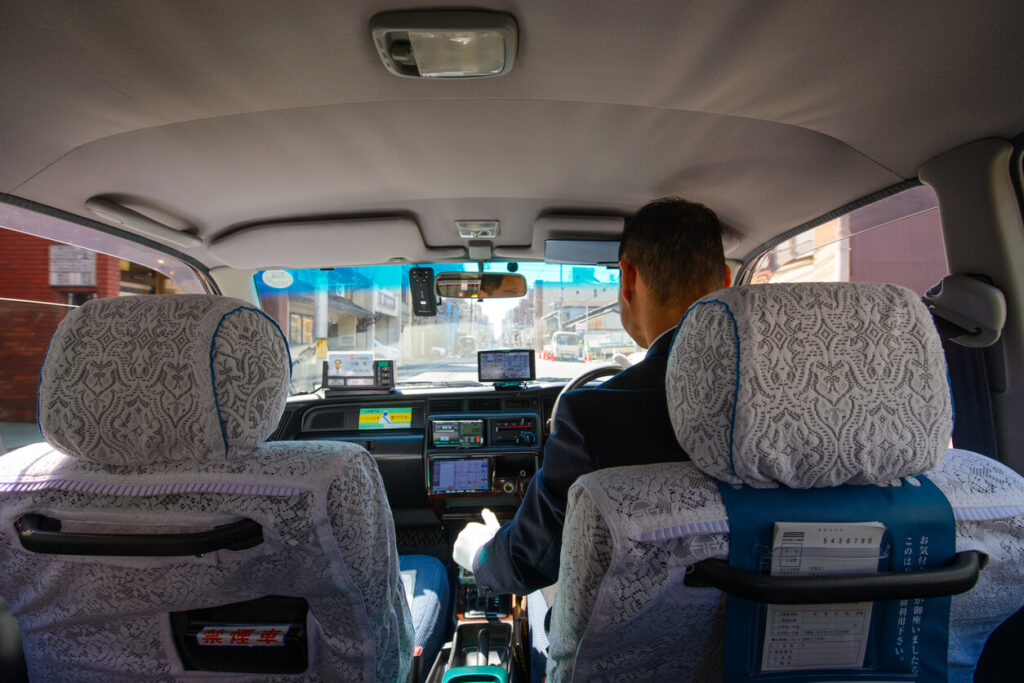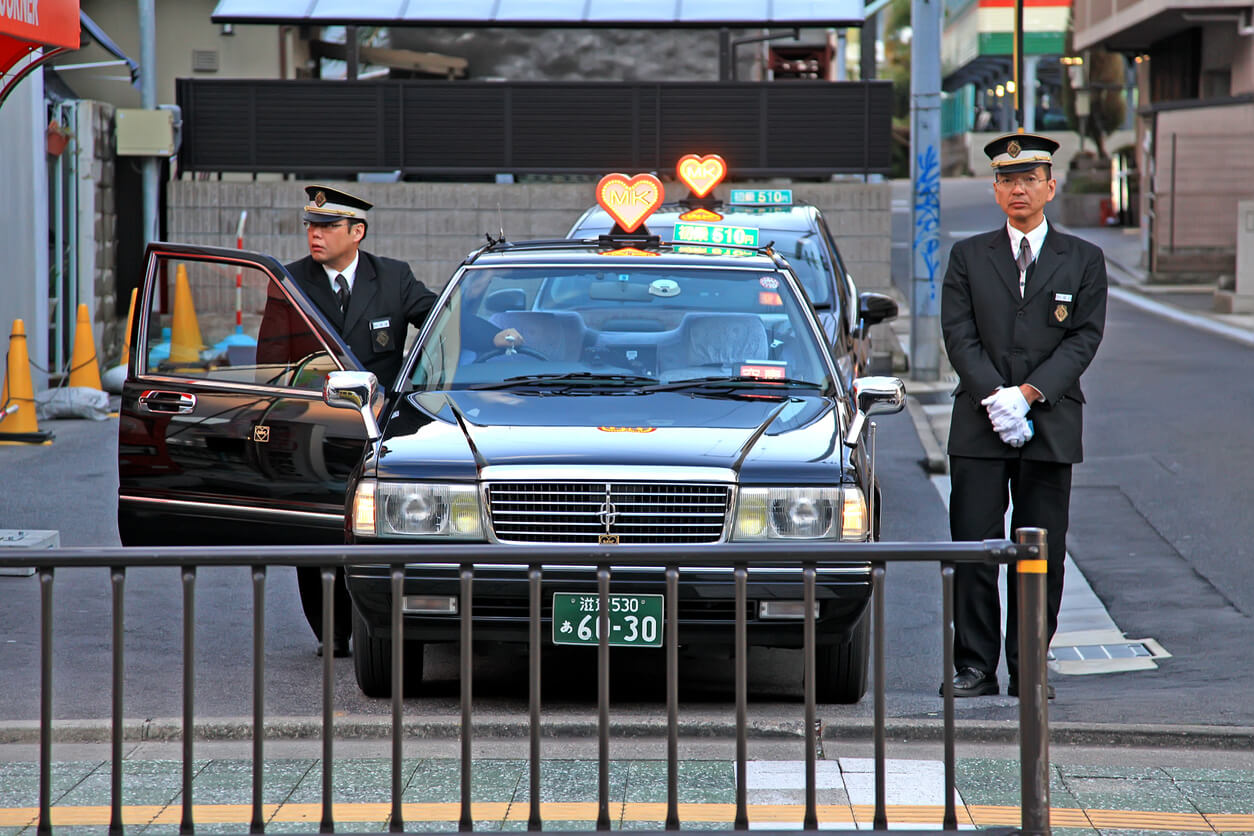Last Updated on September 18, 2025 by Vlad
Spoiled Forever by Japan
I’ve been back from Japan for months now, and I’m still having flashbacks every time I deal with Australian customer service. Not the good kind of flashbacks either – the kind where you remember what life could be like if people actually cared.
It hit me hardest last week when I stood in a Melbourne café for over 20 minutes waiting for two lattes while the barista and wait staff had what seemed like a deep conversation about their weekend plans. Twenty minutes! Being ignore like I am a ghost or something. For coffee. In good old Melbourne!
But let me take you back to Japan, where I learned what customer service actually means when it’s treated like an art form rather than an inconvenience. Sit back, read, and maybe book that flight once you’re done reading!
The Phone Drop That Changed Everything
I’m in a taxi heading to the airport, probably overthinking whether I’ve packed everything (I hadn’t). Twenty minutes after the driver drops me off, I’m patting down my pockets and realise my phone’s gone missing.
I call the taxi company from the airport payphone. The driver picks up, and instead of the “tough luck” I’d expect back home, this guy turns his car around and races back to the airport.
Thirty minutes later, he’s standing there bowing and apologising to ME. Not just a quick “sorry about that” either – a proper, deep, “I have failed you” apology for not checking his cab thoroughly enough after I left.
I dropped my phone. He apologised. Let that sink in.

The Myki Card Miracle
One day I’m doing the weekly shop at a supermarket in Japan, feeling pretty confident about navigating the produce section. I get to the checkout, pull out my card, and… it’s my Myki card.
In Melbourne, this would’ve earned me an eye roll and a sigh that suggests I’ve personally ruined the checkout operator’s day.
Not in Japan.
This elderly checkout lady went on a mission. She walked around the entire supermarket recruiting people who spoke English and cared about helping random foreigners with poor planning skills.
Five minutes later, she returns with three people – a staff member with some English, and a customer who spoke decent English and had clearly been recruited into this rescue operation.
I explained I’d duck home to grab my actual credit card and be back in 15 minutes. Did they tell me to start again? Did they put my stuff back on the shelves?
Nope. They put my shopping – veggies, meat, and beer – into the fridge to keep it cool and safe. When I came back, that same checkout lady appeared within a minute, shopping bag in hand, like she’d been protecting my groceries.
The Wallet Incidents
Just when I thought I’d experienced peak Japanese service, two wallet incidents happened that completely broke my understanding of what service could be.
First, I’m having dinner with my Japanese mate in Yamanashi when I leave my wallet at the restaurant. We’re halfway home when my friend’s phone rings.
It’s the restaurant owner. Not calling to say “you’ve left your wallet, come get it.” Calling to apologise for not spotting the wallet as we walked out and stopping us before we left.
The owner kept apologising. For not being observant enough. About MY mistake.
But the wallet story that really got me happened at a gyoza restaurant with my son. We’d just finished our meal when he needed the toilet, and being in a department store, the toilets were outside the restaurant.
No time to wait for the bill or explain properly. I did what any desperate parent does: left my wallet sitting in plain sight on the table and rushed to the loo.
As we’re walking out, I see our waitress heading toward our table. Fair enough, probably clearing up.
Ten minutes later – because kids and toilets operate on different time – we’re heading back, and there she is. Still standing next to our table. Same position. Arms behind her back like she’s guarding something important.
She bows as we approach and points us back to our seats with a smile that suggests standing still for ten minutes is normal.
It wasn’t until later that someone explained what I’d witnessed: she was literally standing guard over my wallet because I’d left it visible on the table. For ten solid minutes. Just standing there. Protecting a stranger’s stuff.
Try leaving your wallet on a table in Melbourne and see how that works out.
The Beer Glass That Started a Revolution
I’m about to take my first sip of a Sapporo draft when I spot something green floating in my glass. Looks like a bit of parsley – not exactly what you want in your beer.
I politely point it out to the waiter, thinking I’ll get a replacement glass and we’ll call it even.
Wrong.
One minute later: free bottle of beer appears. Fifteen minutes after that: another free bottle shows up. When I go to pay: the chef-owner personally apologises and refuses to take any money for my meal or the two beers.
All this for a tiny bit of green stuff in my glass.
The 11 Yen Phone Call
But if you think that’s excessive, wait until you hear about the pharmacy incident that made me question reality.
We’d bought some antibiotics and meds for the little one and headed home. An hour later, the phone rings.
It’s the pharmacy. Wife says they’ve overcharged us. How much? Eleven yen. ELEVEN YEN. That’s about 11 cents.
Not only are they calling to apologise for this mistake, but they want to know: should we come back to collect our 11 yen before they close, or should they send someone to our place to deliver it?
I’m still not over this one. In Australia, you’d be lucky if they noticed they’d overcharged you by $15, let alone 10-15 cents.

The Water Bill Check That Made Me Question Everything
But the story that really convinced me that Japanese customer service operates on a completely different level happened when I was home alone, working from my in-laws’ place.
The doorbell rings, and there’s a lady in her early 30s at the door. With my broken Japanese, her rusty high school English, and a lot of Google Translate, we managed to have a 30-minute conversation about… my water bill.
She wasn’t there to collect money or complain about overdue payments. She was there to check if everything was okay. The water usage had doubled from the usual amount, and instead of just sending a massive bill, the water company sent someone to make sure there weren’t any leaks or problems.
I explained that there were two extra adults and a toddler staying for the past six weeks, which obviously explained the doubled usage. She was satisfied, apologised for disturbing me, and left.
Imagine that – someone coming to check you’re okay before they bill you for higher usage. In Australia, you’d just get a shock bill in the mail and maybe a threatening letter if you didn’t pay it immediately.
Royal Treatment Just for Existing
Walking into a department store at opening time in Japan is like being royalty visiting a small country. All the staff line up and bow as customers walk past.
Not just a quick nod either – proper bows. For people who are literally just walking through to get to the train station.
I felt like I should’ve been wearing a crown or at least had a decent haircut.
Back in Melbourne: The Harsh Reality
Fast forward to being back in Melbourne, where reality hits hard.
The café incident I mentioned? That’s just Tuesday here. But it’s not just cafes – it’s everything.
Take tradespeople. Last month I booked an electrician for 9am. Nine became ten. Ten became eleven. Just after midday – a full three hours late – he rocks up like he’s early.
“Sorry, I’m a bit late,” he says.
A bit late? A BIT LATE?
Compare that to the Japanese electrician I had: shows up exactly on time, takes off his shoes, puts on plastic foot covers, explains exactly what he’s going to do and how long it’ll take. When he’s done? Cleans up so thoroughly you’d think he was never there. Then bows to me about twenty times like I’d just done HIM the favour.
The Melbourne guy left cable bits on my floor and tracked mud through the hallway.
Or the cleaner who rang my doorbell at 8:58am and was at my front door at exactly 9am. I could see him sitting in his car for 25 minutes beforehand, just waiting for the right moment to not be early OR late.
In Melbourne, “between 9 and 5” means “maybe today, maybe tomorrow.”
The Parcel That Broke My Faith in Australia Post
But nothing prepared me for the reality check of trying to post something back to Japan from Australia.
I recently sent a parcel to Japan using Australia Post’s express service. Three to five business days, they promised. Express! What could go wrong?
Well, for starters, my “express” parcel sat in the exact post office where I dropped it off for nine days. Nine! Just sitting there collecting dust.
It wasn’t until I called to ask where my parcel was that it magically started moving. The customer service rep assured me it would arrive the next day and that someone would call within two business days to explain what happened.
That was back in August. 30+ days later I’m still waiting for that call. They did eventually deliver my express parcel – after 16 days and somehow managing to damage it in the process.
Now compare that to Japan, where we once ordered flying squid from a fishing company in Hakodate late at night and Japan Post delivered it to us perfectly frozen the very next day. Not three to five days. Not 16 days. THE NEXT DAY.
Or the time my mate sent me ice-cold beer through Yamato Transport in the morning to be delivered 400 kilometres away between 5pm and 6pm. The driver showed up at my door at 5:30pm sharp with beer so cold I could drink it immediately.
Four hundred kilometres. Same day. For about fifteen bucks.
We will never get that level of service in Australia. We can’t even get a parcel across town in the promised timeframe without it getting damaged.
The Damage Done
Here’s the thing – Japan didn’t just ruin me for bad service. It ruined me for accepting average as normal.
I now notice every eye roll, every sigh, every “not my job” attitude that I used to just accept. I catch myself standing straighter in shops, half-expecting someone to care about my experience.
I’ve become that person who says “thank you” three times in one transaction because I’m so used to Japanese politeness levels that normal human interaction feels rude.
My friend think I’ve lost it. Maybe I have.
But I’ve tasted what’s possible when customer service is treated as an honour rather than an inconvenience. When helping someone isn’t just a job, but a chance to make their day better.
The Bottom Line: Omotenashi as an Art Form
Japan set the bar so high that everywhere else feels like they’re not even playing the same sport. They’ve turned customer service into an art form while we’re still figuring out the basics.
And maybe, just maybe, if enough of us start expecting better, we might actually get it.
Have you experienced Japanese customer service? Share your stories in the comments – I need to know I’m not the only one ruined for life.
